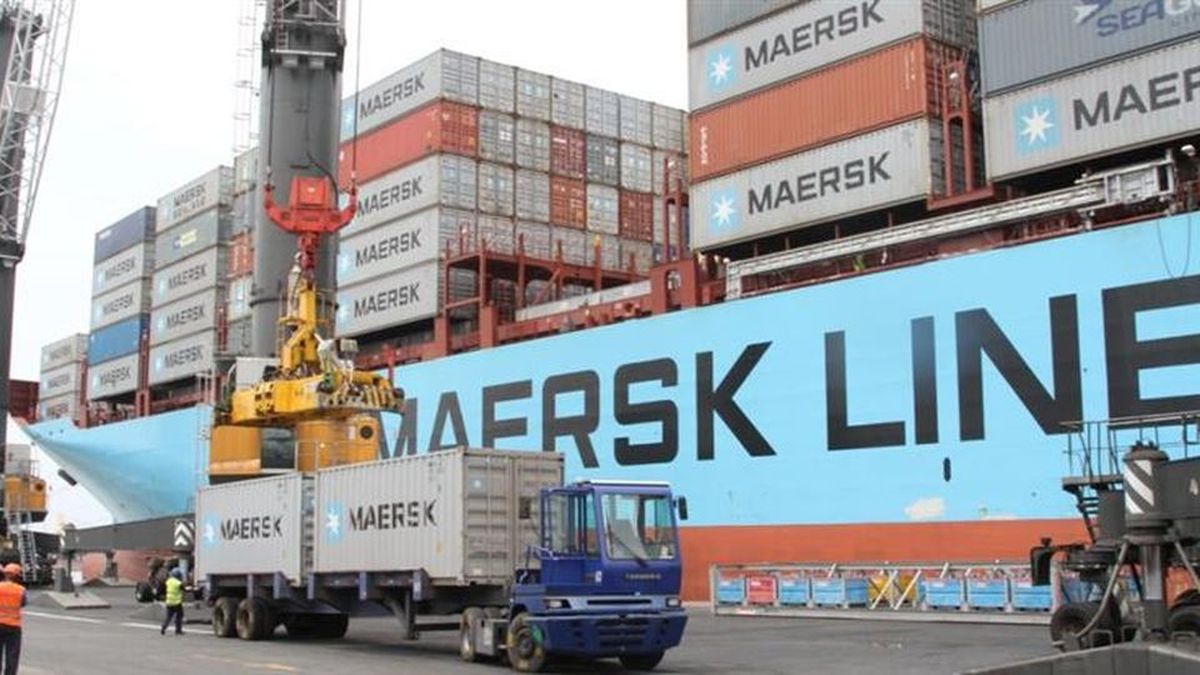He central bank established new measures to guarantee the importer access to the exchange market. The organization led by Santiago Bausili eliminated the need to have prior approval to pay for imports and established a staggered system of access to the exchange market.
“The BCRA will work to simplify the payment system for imports of goods and services, eliminating any requirement linked to obtaining authorizations through the SIRA or SIRASE, and It will also void the requirement for the AFIP Foreign Trade Single Account Certificate. Imports that take place in the future may be paid respecting the international trade deadlines determined by the BCRA, defined according to tariff positions,” the BCRA anticipated this morning.
The decision was made known after the meeting held by the new President of the Central Bank with representatives of the national, foreign, public and private banks, as well as authorities from the chambers, ABA and ADEBA.
BCRA: what are the changes for importers
Through communication A7917, established that “It will not be necessary to have a declaration carried out through the Import System of the Argentine Republic (SIRA) in ‘EXIT’ state as a requirement for access to the exchange market and nor validate the operation in the computer system ‘Single Foreign Trade Current Account’ “.
So, for payments to importers that are made from this Wednesday, Prior authorization from the BCRA will not be required.but This access will be staggereddepending on the importance of the activity carried out by these companies.
The Payments would be immediate for purchases abroad hydrocarbons and derivatives and electrical energy. Meanwhile, after 30 days runs, payments could be released pharmaceutical products or inputs for this industry and fertilizers or phytosanitary products.
The organization also imposed a deadline of six months (180 days) for payments of automobile imports.
At the same time, it was established that for the rest of the assets, payments may be made in four installments. That is, “25% from 30 (thirty) calendar days; an additional 25% from 60 (sixty) calendar days; another additional 25% from 90 (ninety) calendar days and the remaining 25% from 120 ( one hundred and twenty) consecutive days”.
As this scheme is proposed for imports carried out starting this Wednesdaythe same regulation stipulated a series of requirements to process payments for imports made previously.
Juan Pablo Bastero, General Director of Jidoka He also explained to this medium that the new norm eliminates tariff barriers for the importer that they were “many and very exhausting.” He highlighted that one of the novelties is that “Not all imports will be able to be transferred in advance or make an immediate payment.” In this case, the immediate payment will only be for fuel and electricity once they have the delivery in place.”
“Once the emergency passes, I believe that foreign trade will begin to normalize, not only of the impo but also of the exporter and that exports will begin to be generated,” Bastero assured.
On the side of the SME sector, Daniel Rosato, President of Industriales Pymes Argentinos He maintained that the greatest benefit for the sector was the narrowing of the exchange gap. At the same time, he warned: “The problem continues to be faced by SMEs who need to turn in advance to have merchandise sent from abroad. The alternative that we see is for the Government to work with the banks to finance the SMEs to the industries that do not have reserves to finance imports”.
Lastly, dialogue with Ambit, from a sector of the importing companies They commented that in principle it is a “very positive” measure and that comes to provide a “response to the requests” that the sector had been making to solve not only the commercial debt but also in terms of the release of dollars to unblock payments, despite the fact that they highlight the understanding of the economic emergency situation. They trust that after the first months until the arrival of dollars from the harvest, the situation It can be normalized sector by sector.
Importers: the Central Bank launched bonds to cancel commercial debts
According to Communication “A” 7918, he central bank made available the issuance of titles for importers of goods and services with commercial debt outstanding, which will be subscribed to the wholesale dollar and will be paid in dollars with early redemption option.
As it was announced, it is the creation of the BCRA Note called Bonds for the Reconstruction of a Free Argentina (BOPREAL) with a maximum maturity date of October 31, 2027.
The subscription will be in pesosthe exchange rate reference published by the BCRA based on the Communication “A” 3500 corresponding to the business day prior to the bidding date.
AND the payment currency will be in dollars and the amortization will also be in US currency with the possibility of being “full at maturity or with a partial amortization scheme, as defined from time to time.” Early cancellation, for its part, can only be in pesos dollar linked. Finally, the rule also specifies that the maximum annual nominal rate (TNA) of the bond will be 5%. “Interest will accrue on the basis of a year of THREE HUNDRED AND SIXTY (360) days made up of TWELVE (12) months of THIRTY (30) days each, at a maximum annual rate of 5% to be defined in the tender announcement, which may be payable quarterly or semi-annually in US dollars,” the official communication stated.
The Bopreal will allow the BCRA to improve the d sheete balance sheet of the monetary authority since they will contribute to reducing the paid liabilities in domestic currency issued by the organization.
Source: Ambito




